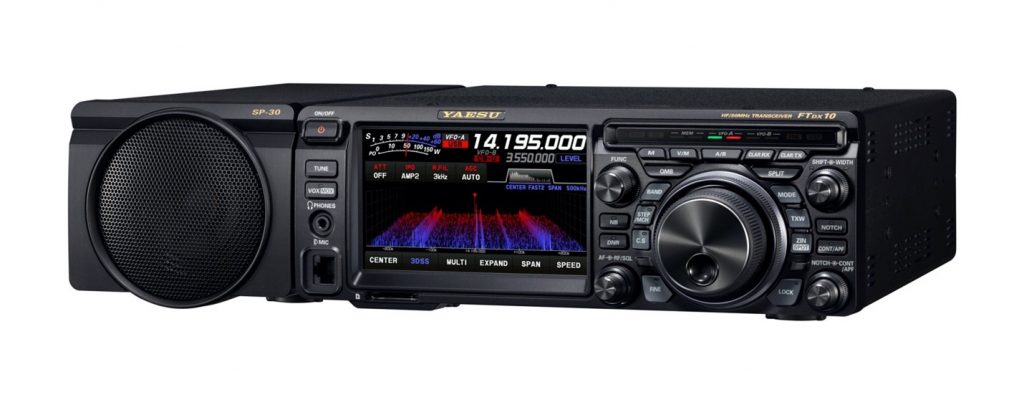
It’s always fun buying a new piece of ham radio gear. Whether you’re buying your first HT or upgrading your capabilities to work more DX, getting gear is an integral part of the hobby.
But buying gear, like buying anything else, requires some research. There are some basic questions you should ask yourself before you sink your money into a piece of equipment you will (hopefully) use a lot.
The first is: Does this do what I need it to do? Take a minute to think about what you’re looking for in your purchase. If it’s a transceiver, what bands and modes do you want it to cover? If it’s an accessory, what problem are you trying to fix, or what level of convenience are you trying to add? Take the time to consciously think about this question; it will help specifically identify what you’re looking for.
The next question to ask is: Does the device do more than I need it to? Like with most other purchases, it’s easy to get upsold on attractive features for a product or service. Ham radio is no different; the newer generation radios and accessories offer a lot of bells and whistles that you may not need, depending on how you pursue ham radio. For example, if your interests on HF lean more toward casual SSB operating, why pay for a radio targeted to a contester or DXer with extra CW filtering? If you’re looking for a new HT, why pay for features you may never use—DMR or APRS/GPS, for example—when you could get an analog HT for less money?
It’s worth your time to sit down and make a list of what you are looking for in a piece of gear and avoid the gear that doesn’t fit that need.
Here are some other things to consider:
What do other hams think of your potential purchase?
Check the reviews of the gear you’re looking to buy. Do you know anybody who has the gear you want? Ask their opinion…better yet, ask if you can take it for a test drive and try before you buy. DX Engineering has customer reviews of most products they sell; read them and see how other DXE customers rate that gear.
Is buying used gear an option for you?
Buying new gear certainly has lots of appeal. Being the first owner of a new rig, coupled with a manufacturer’s warranty, make buying new very attractive. Of course, the up-front costs of new gear can be significant. For those of us who are budget-conscious, buying used gear is always an option, but you need to be on your toes for scammers and unreliable gear. Everybody has their own circumstances and comfort level when it comes to used gear, and there’s no right answer. Here are a few questions to ask when buying used gear:
- Is the asking price reasonable? Research what the cost of buying new is. Check the online auction sites and used gear sites and see what your piece has been selling for. If it’s too high, keep shopping for a better deal. If it’s too low, that could be a bargain…or it could be indicative of a problem. If it’s too good to be true, it probably is. If you’re buying online, ask if the cost includes shipping and insurance.
- Did it come from a smoke-free environment? Cigarette smoke doesn’t just smell bad, it sticks to electronics and can affect performance. It can also be a major project to clean it up. Steer clear of gear owned by a smoker.
- Are there any known issues with the gear? This may sound obvious, but make sure you know what condition the used gear is in. Do all the features work properly or is it being sold for parts? Any interesting quirks to the gear? If yes, are they quirks you could fix yourself or live with, and is the gear priced accordingly with those quirks?
- Can you try it first? Will the seller let you see the inside, test it, smell it, power it up, and try it out?
- How did it work for you? Most hams love to talk about ham radio and gear. Let the seller tell you a story about the piece you want to buy. You’ll learn more about their character, get a sense if they’re trustworthy or not, and give you time to determine if you trust the seller. Most people are uncomfortable with silence, and they’ll talk to fill that silence. Give the seller the opportunity to talk about the gear you’re interested in; they may tell you more than they intended to.
- Is it okay if my Elmer checks this out, too? If you’re not tech-savvy, find a friend or club member who’s willing to help you buy used gear and check it out for you. If the seller seems nervous about somebody checking out what they’re selling, walk away.
Buying a new—or new to you—piece of gear is always exciting, but don’t let it be anxiety-inducing. Do all the things you would do with any major purchase; clearly identify what you want and what features you need and don’t need; research your options; ask a lot of questions; get help from trusted friends if you need it; and listen to your gut if something doesn’t feel right. These questions will help ensure you make a good, informed purchase and will enjoy that new piece of gear for years to come. Happy hunting!

